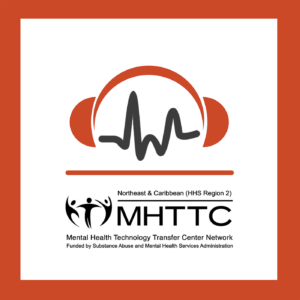
The Toward Wellness and Recovery podcast explores topics of interest to those people who support and help others, such as health and behavioral health service providers. We have produced two seasons of the podcast, Season 1: Flourishing at Work and Season 2: Mind Care Matters.
Season 1: Flourishing at Work
Mental health is such a critical component of all of our lives. Some not only take care of their personal mental health but dedicate their professional lives to supporting the mental health of others. On the podcast channel for Season 1: Flourishing at Work, we’ll talk about topics of interest to those providing mental health services. We’ll address evidence-based practices, emerging needs, and ways to enhance your own wellness while supporting others. These podcasts are produced by the Northeast and Caribbean Mental Health Technology Transfer Center (MHTTC) and funded by the Substance Abuse and Mental Health Services Administration.
The podcast series for Season 1: Flourishing at Work, can be found here.
Season 2: Mind Care Matters
Mind Care Matters, a podcast series for behavioral health administrators, supervisors, and staff provides an overview of effective and innovative programs to inspire and support people with mental health conditions. Podcast host and psychiatric rehabilitation expert, Dr. Michelle Zechner, explores new and emerging psychiatric rehabilitation techniques, education, and research to help people living with mental health conditions to live, work and love beyond the symptoms of their mental health condition.
The podcast series for Season 2: Mind Care Matters, can be found here.